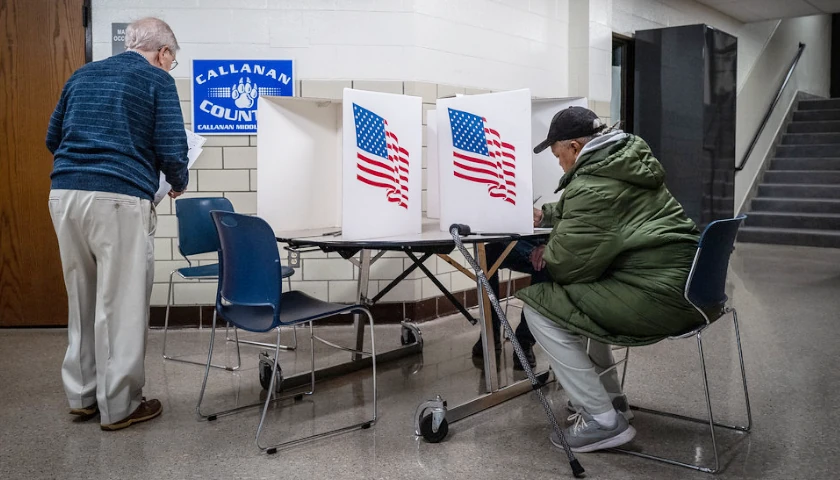by Mary Frances Myler
The kids aren’t alright, and it’s starting to show. Last week, the New York Post published a front-page story that heralded “The New Great Depression,” tracking the twin rise of social media and juvenile depression.
Since 1991, the University of Michigan has annually polled thousands of students in middle and high school, asking whether they agree with the following three statements: “I can’t do anything right,” “I do not enjoy life,” and “My life is not useful.”
Prior to 2012, fewer than 1 in 5 students agreed with the phrase “I do not enjoy my life.” But after that year, the numbers began to skyrocket. Today, nearly half of teens say that they agree with the three phrases asked in the poll, reporting that they do not enjoy life, do not have a useful life, and cannot do anything right.
This is not sustainable pic.twitter.com/VGAOMaPG5a
— Brad Wilcox (@BradWilcoxIFS) June 21, 2023
Gen Z Struggles With Depression
Jean Twenge, a psychologist at San Diego State University, attributes the staggering increase in depressive symptoms and feelings of despair among teenagers to screen time and social media. The spike in depressive symptoms among teenagers coincides with the growth of social media, which has detrimentally impacted Gen Z’s mental health. Twenge told the New York Post:
Depression isn’t just about emotions. It’s about cognition, it’s about thinking, it’s about how you see the world.… A generation that is more depressed is more likely to be pessimistic, and they’re going to view ambiguous things as negative.
The mental health crisis among young people has been well-documented, but the numbers are only increasing. Earlier this month, the CDC’s National Center for Health Statistics revealed that 15 percent of Americans under the age of 17 received mental health treatment in 2021. Over 30 percent of Americans between the ages of 18 and 25 experience mental health problems.
Earlier this year, U.S. Surgeon General Vivek Murthy warned that social media has contributed to the increase in depression and anxiety among young people. Faced with content that makes teens feel unhappy in their bodies, exposes them to topics like suicide and self-harm, and feeds into social media addictions, it’s no wonder that Gen Z’s mental health is going down the drain.
Looking at the Bigger Picture
I am no psychologist — and I don’t wish to downplay the detrimental effects of social media — but it seems a bit unlikely that technological change is the only factor impacting Gen Z’s mental health. In addition to growing up in the immediate aftermath of the internet explosion, Gen Z has also been shaped by rapid secularization and religious disaffiliation, among other cultural factors.
As the New York Times points out, authors Jim Davis, Michael Graham, and Ryan P. Burge write in their book The Great Dechurching: Who’s Leaving, Why Are They Going, and What Will It Take to Bring Them Back?:
We are currently in the middle of the largest and fastest religious shift in the history of our country.… About 15 percent of American adults living today (around 40 million people) have effectively stopped going to church, and most of this dechurching has happened in the past 25 years.
This kind of rapid social change creates cultural whiplash, sending today’s young people into uncharted territory. Social science has long noticed the correlation between religious involvement and positive mental health. In fact, religious involvement is associated with “better coping with stress and less depression, suicide, anxiety, and substance abuse.”
It would be wrong to turn religion into a therapeutic endeavor — valuable because of how Sunday morning sermons make us feel — but religious communities have traditionally been places where young people receive moral and intellectual formation and participate in serving others. It’s hard to imagine that kids who are actively involved in vibrant church communities would respond negatively when asked whether they enjoy life, whether their life is useful, and whether they can succeed in their endeavors.
Technology is certainly a cause of Gen Z’s woes, and it should be dealt with accordingly. But even as we push back against social media’s disembodying influence, we should take a step back and look at the bigger picture, too. TikTok and Instagram might be hallmarks of the noonday devil, but today’s young people would certainly be happier and healthier if they spent a fraction of their screen time focused on matters of the soul.
– – –
Mary Frances Myler is a postgraduate fellow with the Center for Citizenship and Constitutional Government.




